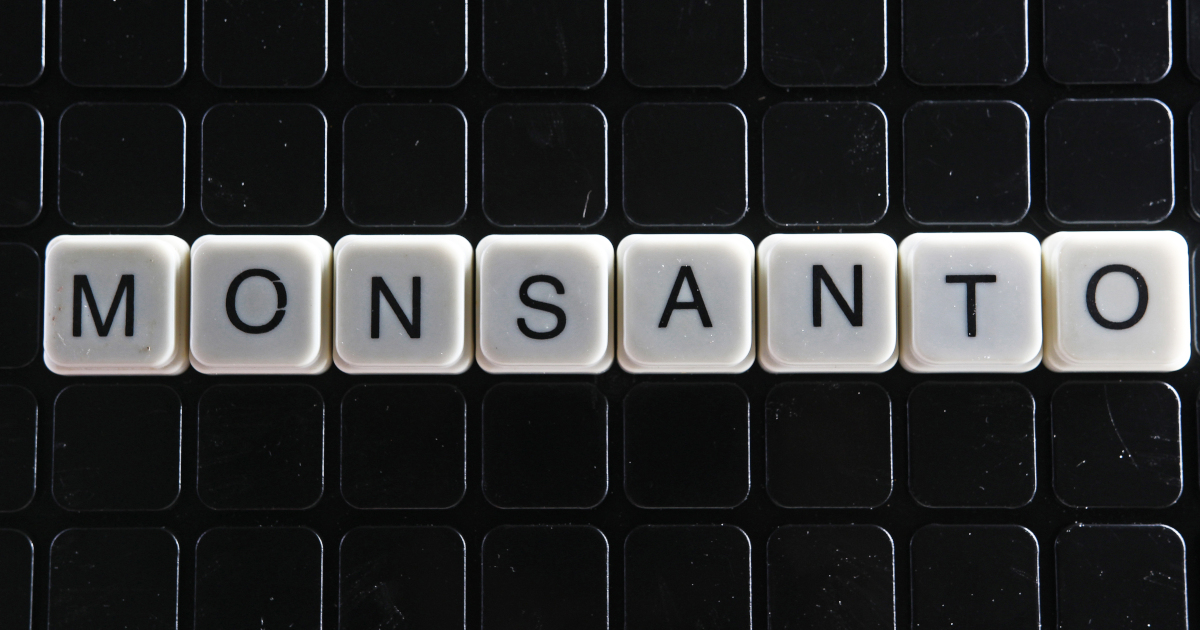
Rounding Up the Latest on the Monsanto Roundup Trial and Other Related News
February 28, 2019 | Katherine Paul
Organic Consumers Association
While much of the nation was tuned into the Michael Cohen drama in Washington, D.C. this week, another drama was playing out in a San Francisco courtroom.
On February 25, a jury in San Francisco Federal Court began hearing the case of Edwin Hardeman vs. Monsanto. Hardeman alleges that Monsanto’s Roundup weedkiller caused his non-Hodgkin lymphoma cancer.
Hardeman’s is the second case involving someone who developed non-Hodgkin lymphoma after using Roundup. His case follows the August 10, 2018, $289-million judgment (later reduced to $78 million) awarded to DeWayne “Lee” Johnson, a former school groundskeeper who also sued Monsanto for causing his non-Hodgkin lymphoma. Monsanto’s appeal of the $78-million judgment is still pending.
There are more than 9,000 claims pending against Monsanto in state courts, about 620 awaiting trial in federal court. Reuters reported in November that Hardeman’s case was selected as “a so-called bellwether, or test trial, frequently used in U.S. product liability mass litigation to help both sides gauge the range of damages and define settlement options.”
Off to a rocky start
This week’s trial was barely underway before Judge Vince Chhabria threatened to “shut down” Hardeman’s attorney for violating the judge’s ban on presenting the jury with evidence that Monsanto attempted to manipulate regulators, including by ghostwriting safety reviews of its flagship herbicide.
According to reporting by U.S. Right to Know’s Carey Gillam, the judge was “ripping into” Hardeman’s attorney, Aimee Wagstaff, threatening to “sanction her $1,000 and maybe the whole plaintiff’s legal team as well. Calling her actions “incredibly dumb.”
A report in GM Watch outlined how even before the trial started, during jury selection. “Chhabria appeared to act in an overtly partisan way,” and had several prospective jurors “removed from the jury pool based on their written questionnaires, which indicated they had negative perceptions of Monsanto.”
According to GM Watch, Chhabria was biased from the start:
But although Chhabria agreed with Monsanto’s request to strike these people from the jury pool, he refused a request from the plaintiff’s attorneys to remove a prospective juror who said he felt “they (Monsanto) typically are very honest and helpful to society”, and that he believed Monsanto’s Roundup was safe. Negative perceptions of Monsanto, it seems, are problematic, but not positive ones.
On day three of the trial (Wednesday, February 26), another juror was dismissed, leaving one man and six women. As Gillam reports, a total of six jurors are required and all must be unanimous in their verdict. On the same day, Chhabria followed through on his threat to sanction ($500) Wagstaff.
Meanwhile, on the glyphosate front . . .
Even as jurors in San Francisco were listening to testimony on the science behind glyphosate and its link to non-Hodgkin lymphoma, glyphosate, the key active ingredient in Roundup, was making headlines elsewhere.
• Lymphoma News Today published an article on February 25 titled, “Exposure to Glyphosate in Herbicides Increases Risk of Non-Hodgkin’s Lymphoma, Study Says.” The article referred to a recent meta-analysis of the studies on glyphosate and non-Hodgkin which concluded that exposure to glyphosate increases a person’s risk of non-Hodgkin lymphoma by 41%.
• On February 22, Forbes magazine pulled an article by Geoffrey Kabat attacking the new meta-analysis confirming a link between glyphosate and non-Hodgkin lymphoma. As GM Watch reported, Kabat has plenty of conflicts of interest when it comes to Monsanto. He also wrongly claimed that Gillam, who reported on the meta-analysis, had previously been fired by Reuters.
• On February 14, Return to Now reported that Bill Gates donated $15 Million to a campaign pushing GMOs on small farmers around the world. This, despite mounting evidence of the health risks of GMO foods themselves, and the pesticides used to grow GMO crops. Not to mention the impact on water quality and soil health.
To keep up with the latest on the Hardeman vs. Monsanto trial, check out our #MonsantoTrial page.
Katherine Paul is associate director of the Organic Consumers Association (OCA). To keep up with OCA news and alerts, sign up for our newsletter.
